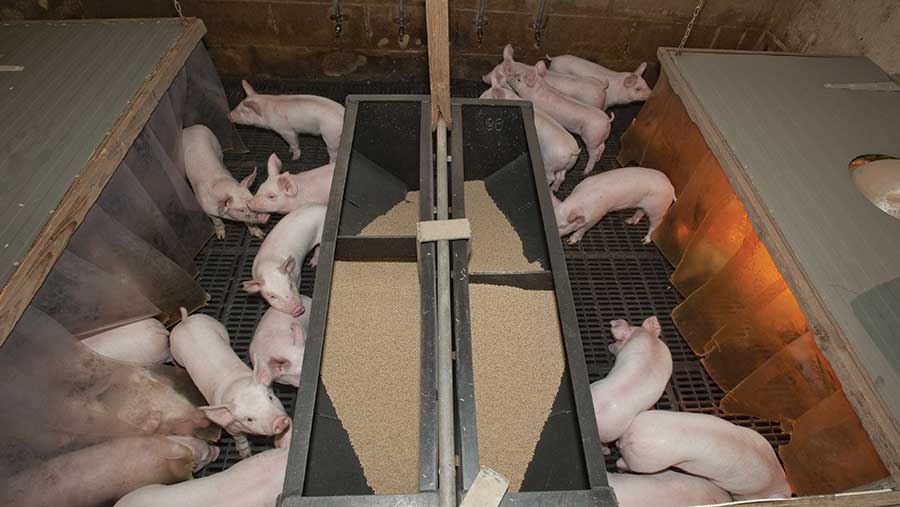Feed bags found to be spreading deadly pig disease
 © FLPA/REX Shutterstock
© FLPA/REX Shutterstock The highly virulent Asian-American strain of porcine epidemic diarrhoea virus (PEDv) could be spreading between countries on contaminated feed bags, scientists have warned.
The virus, which is fatal to young pigs, can survive for weeks on feed bags and in feed being shipped across the world, said researchers investigating how the virus spread from China to the United States.
And while they were unable to identify exactly how it was likely to have entered the US, they believe the most likely source was bulk bags used to transfer pigfeed, soya beans and pet treats.
“While the virus could have come from a number of sources such as contaminated feed supplements, semen, lorries or people, we think it is most likely the virus came from feed bags,” said Andrea Ladinig, doctor of veterinary medicine at the University of Veterinary Medicine in Vienna.
See also: Advice on preventing PEDv on farm
“These bags are designed to be reused, but there is no protocol for cleaning or disinfecting them.”
Speaking at the Herning Pig Congress in Herning, Denmark (21 October), Dr Ladinig said the virus’ ability to live outside an infected pig was a major factor in the spread of the disease, making it vital pig producers took stringent biosecurity measures.
“Everyone said the virus wouldn’t get to the US, but it has. Somehow it crosses countries, so we can’t say the risk to the UK isn’t there.”
Andrea Ladinig, University of Veterinary Medicine, Vienna
She said a study carried out in the US found the virus was able to survive for up to a week in faeces and room-temperature water, a week in dry feed and up to four weeks in wet feed.
But scientists discovered it lived even longer in different feed ingredients, with the live virus able to survive for up to 180 days in soya bean meal.
This pointed to how the disease could have spread from China and the United States to Europe, where cases have so far been identified in Germany, the Netherlands and Belgium. Further unconfirmed cases have been reported in Austria, Spain, Estonia and Romania, Dr Ladinig added.
“The strains of the virus identified in Europe are more or less identical to the US strain, suggesting it either came from there or China,” she said.
“Feed bags are the likeliest culprit, but feed or feed ingredients could also be a risk. Some feed minerals, such as amino acids, come from China, but as there is no other source for these things farmers don’t have a choice.”
With no clear knowledge of how the virus was moving between countries, she said it was important UK farmers were not complacent about the risk of it reaching UK shores and remained vigilant for signs of outbreaks.
“Everyone said the virus wouldn’t get to the US, but it has. Somehow it crosses countries, so we can’t say the risk to the UK isn’t there.
“When you don’t know how it is entering a country, its vital to protect yourself,” she added. “That means making sure your biosecurity measures are in place and thinking about what you do with inputs that are brought to the farm.
“AHDB Pork has a sanitation protocol in place, but that won’t protect producers from the disease entering the country on feed bags or in feed. That’s the risk the country has to evaluate itself.”
